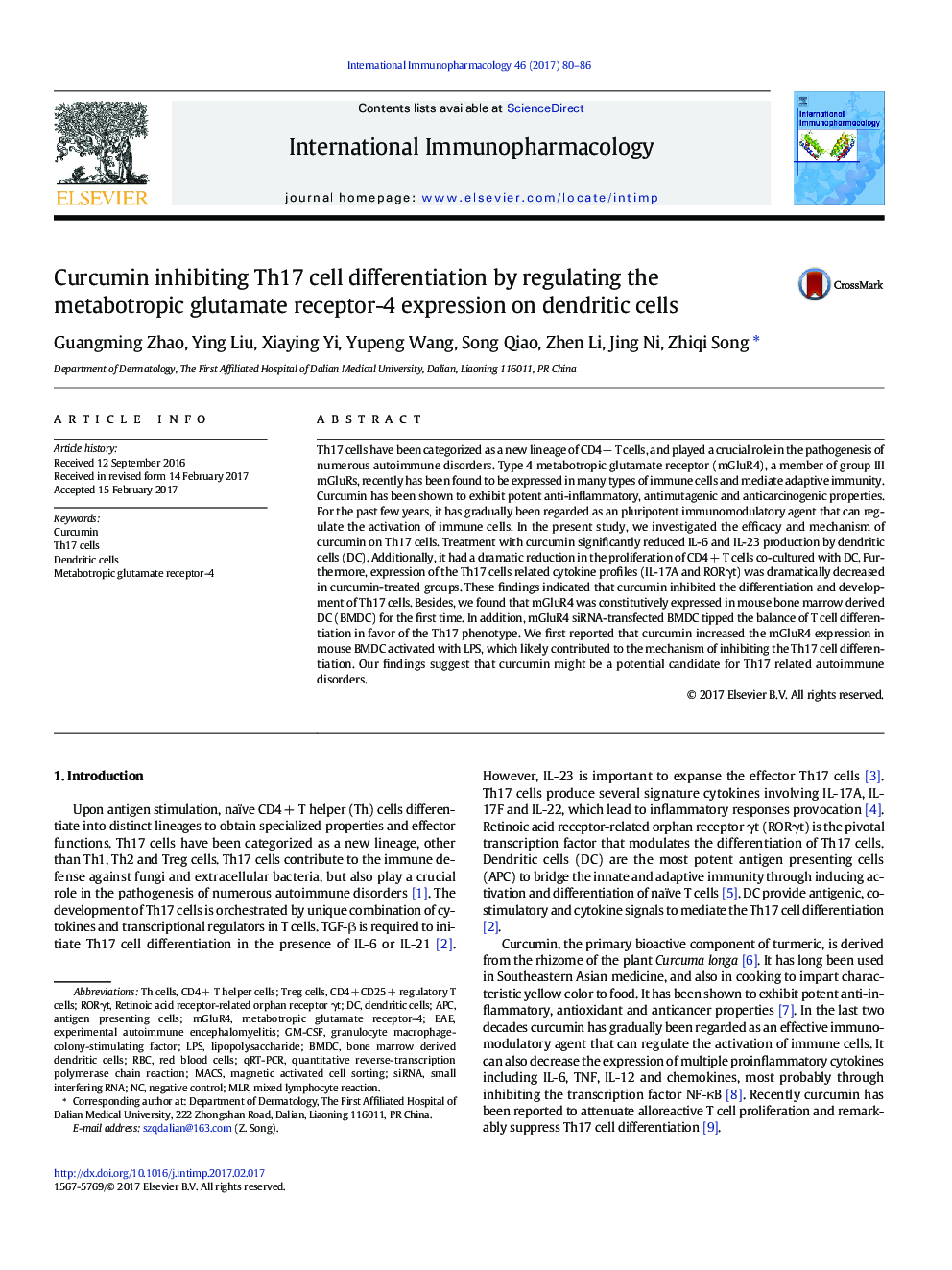| Article ID | Journal | Published Year | Pages | File Type |
|---|---|---|---|---|
| 5555566 | International Immunopharmacology | 2017 | 7 Pages |
â¢We found that mGluR4 was constitutively expressed in mouse BMDC for the first time.â¢We first reported that mGluR4 siRNA-transfected BMDC inhibited the differentiation and development of Th17 cells.â¢We first showed that activation of mGluR4 in BMDC by curcumin might mediate the inhibition of Th17 cell differentiation.
Th17 cells have been categorized as a new lineage of CD4+ T cells, and played a crucial role in the pathogenesis of numerous autoimmune disorders. Type 4 metabotropic glutamate receptor (mGluR4), a member of group III mGluRs, recently has been found to be expressed in many types of immune cells and mediate adaptive immunity. Curcumin has been shown to exhibit potent anti-inflammatory, antimutagenic and anticarcinogenic properties. For the past few years, it has gradually been regarded as an pluripotent immunomodulatory agent that can regulate the activation of immune cells. In the present study, we investigated the efficacy and mechanism of curcumin on Th17 cells. Treatment with curcumin significantly reduced IL-6 and IL-23 production by dendritic cells (DC). Additionally, it had a dramatic reduction in the proliferation of CD4 + T cells co-cultured with DC. Furthermore, expression of the Th17 cells related cytokine profiles (IL-17A and RORγt) was dramatically decreased in curcumin-treated groups. These findings indicated that curcumin inhibited the differentiation and development of Th17 cells. Besides, we found that mGluR4 was constitutively expressed in mouse bone marrow derived DC (BMDC) for the first time. In addition, mGluR4 siRNA-transfected BMDC tipped the balance of T cell differentiation in favor of the Th17 phenotype. We first reported that curcumin increased the mGluR4 expression in mouse BMDC activated with LPS, which likely contributed to the mechanism of inhibiting the Th17 cell differentiation. Our findings suggest that curcumin might be a potential candidate for Th17 related autoimmune disorders.
